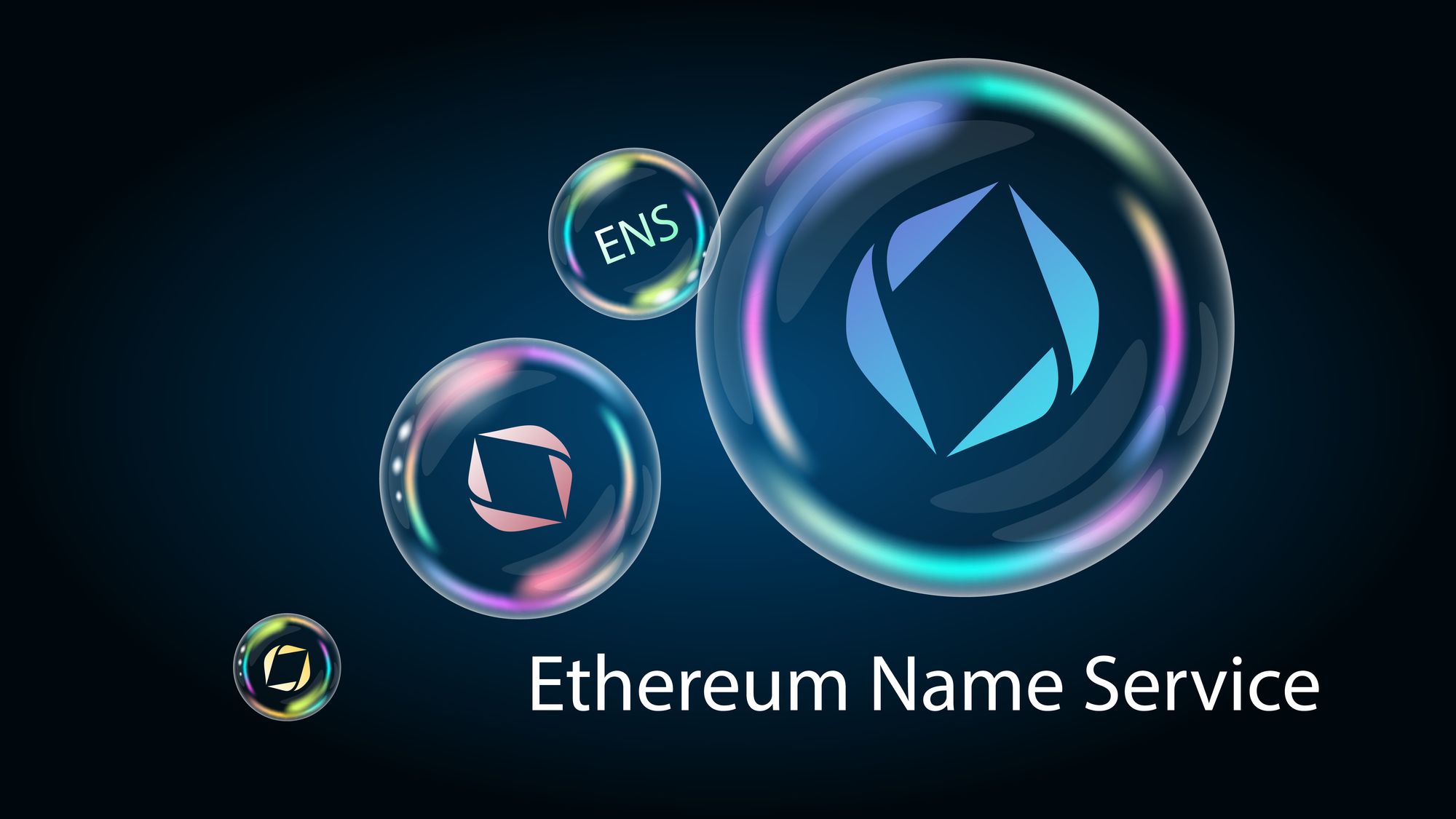What is the Ethereum Name Service (ENS) and How Does It Work?
The ENS is a decentralized lookup system similar to the internet's DNS. It links information of a public address to a name. Hence, blockchain users can be identified by easily readable names instead of confusing alphanumeric characters.

The Ethereum Name Service (ENS) has the possibility to significantly transform how we engage with and utilize blockchain technology. Still, in order to appreciate why this may be such a game-changer, we must first grasp what ENS is and how it works.
Typically, to send tokens to a public address, you would need to copy a string of characters that look like this "0xB1eG5651100B2542aCf896458f023a99695BFfF3." However, this poses a level of risk, as one could mistype a wallet address, and lose their coins. Furthermore, it is critical to recognize that the majority of crypto users are still new to the technology and are only beginning to explore it. Therefore, dealing with long sequences of characters will most likely turn off some of them for fear of making a mistake.
This is where Ethereum Name Services (ENS) come into play. Here's all you need to know about it and why it's so important in the future of blockchain technology.
What is the Ethereum Name Service (ENS)?
The Ethereum Name Service (ENS) is a decentralized lookup system similar to the internet's Domain Name System (DNS). It links information of a public address to a name. Hence, blockchain users can be identified by easily readable names instead of confusing alphanumeric characters. As a result, you could send some tokens to "vitalik.eth"instead of "0xB1eE...GF3."
To use the service, you would need to buy a Domain name and secure your preferred name early enough. The ENS isn't specifically for "Ethereum" only, but is built on the Ethereum network; hence, it is compatible with all ERC20 tokens.
Why is the Ethereum Name Service (ENS) Important?
In the early days of the internet, websites were identified with IP addresses that looked like "172.217.204.102." Of course, this is quite difficult to remember, and it wasn't much fun until they were replaced with Domain names like "www.google.com" via Domain Name System (DNS) technology.
The same thing is currently happening in the blockchain industry, the majority of blockchain addresses still employ a scheme similar to the old IP address structure. Hence, to transfer tokens to someone else's address, you are required to send to the earlier mentioned alphanumeric strings rather than something more human-friendly, such as the wallet owner's name.
However, with the ENS, you can be identified with your easily recognizable names and make transactions.
How is ENS different from DNS?
Unlike the Domain Name System (DNS) which is centralized and censored, the Ethereum Name Service is a decentralized, open, and extensible name system that works with the Ethereum blockchain. As a result, the ENS is immune to the security concerns that plague DNS systems - where DNS records and Domain names are controlled by a centralized authority.
In layman terms, numerous nodes verify and validate ENS transactions, making it secure and hardly impenetrable; however, the DNS is kept on a series of computers owned by one person or a group of persons with common interest.
Decentralization is important as we head towards a future were blockchain technology will shape our everyday lives. With Web3.0 in sight, having these domain names will help onboard more people into cryptocurrency without putting them through security risks.
How ENS works
Two Ethereum smart contracts serve as the foundation for ENS. To begin with, every domain name registered in the ENS has an owner. An owner owns a named domain and can transfer it to a new owner at any time.
The owner who desires to purchase a domain is referred to as a "registrant" since he must register the domain with the ENS. The "registry" component of the ENS is in charge of recording, monitoring, and tracking who has registered for a domain - the registrar.
These registrars are smart contracts that assign subdomain domains and are overseen by the main registrar, known as the permanent registrar. They store three important facts about each domain: the domain's owner, the domain's resolver, and the caching time for all entries under the domain. They can be modified at any time or level inside the ENS and are accessible to the registry's owner.
The second smart contract is the resolver, which translates domain names to machine-readable addresses and vice versa. This second smart contract connects each domain to the correct user, website, or location.
The resolvers are the ENS components that are in charge of converting names into addresses. Any contract that implements applicable standards can operate as a resolution in the system. Each identifier type, such as IPFS content hashes, bitcoin addresses, and so on, describes a resolver's techniques to produce records for that kind. Furthermore, the EPI standardization process can define new identifier types at any moment.
To create your Ethereum username, go to the ENS dapp and begin by looking for an accessible domain name. Once you've found one, complete the registration procedure, which includes verifying two transactions from your wallet and paying the yearly price, which is $5 per year for names longer than five characters, but that increases as the number of letters you have reduces.
Final Takeaway
The Ethereum Name Service (ENS) is an important protocol that will help beginners navigate cryptocurrency easier, making the entire process more user-friendly for both new and existing blockchain participants; also, it will facilitate the onboarding of skeptics into blockchain technology.
Looking at it from the angle of Web3, it is an important prerequisite, as the Web3 world looks to eliminate all forms of censorship and centralization, and the ENS looks to usurp the existing DNS.
For more beginner tips, as well as detailed guides on cryptocurrency and blockchain technology, do well to visit the CCTIP Blog and follow our social media communities: